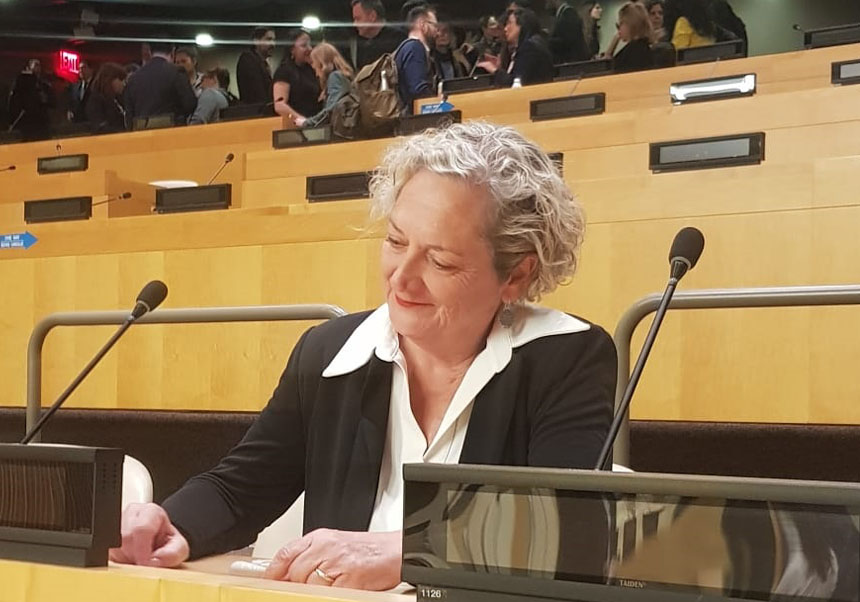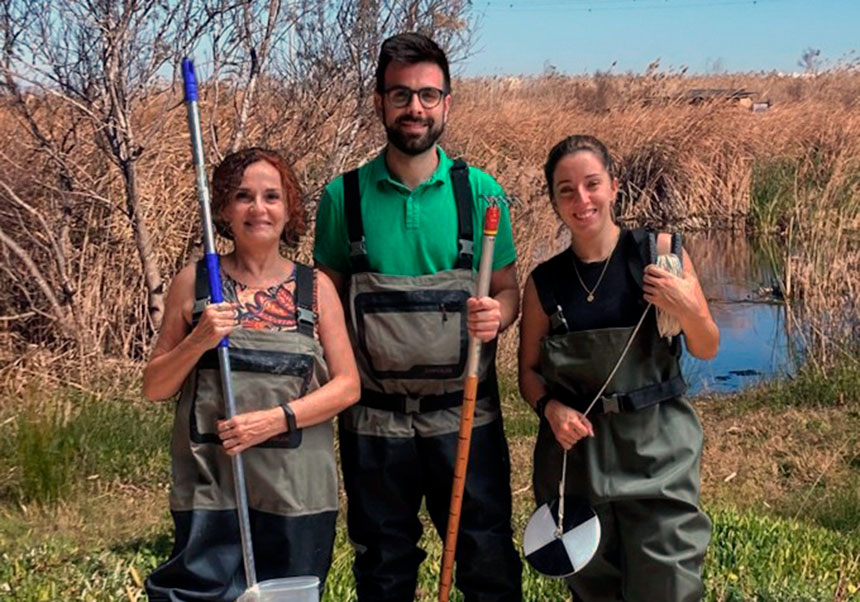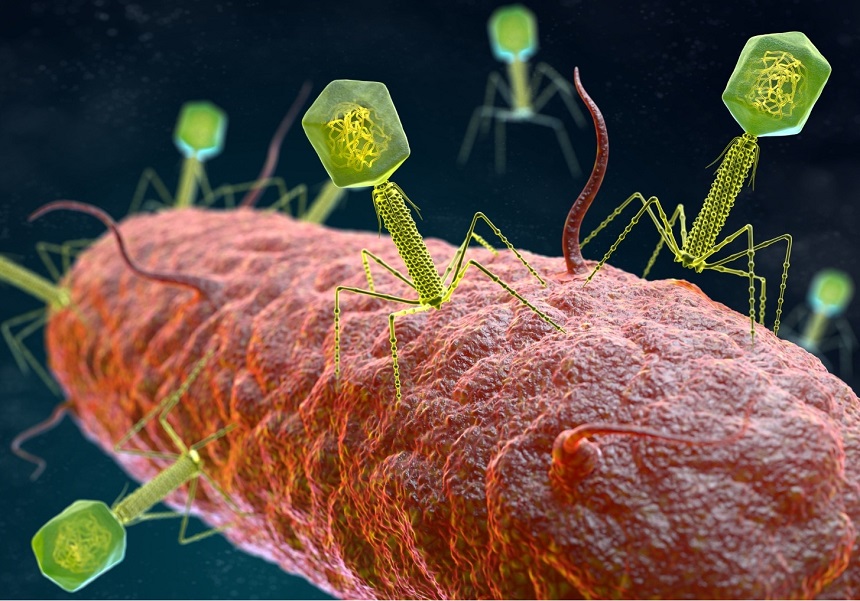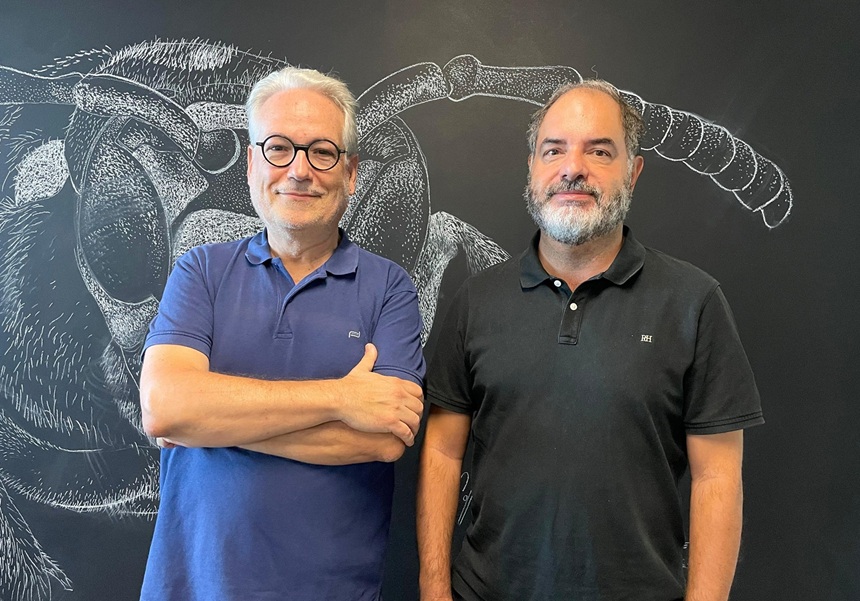The University of Valencia participates in the constituent process of the United Nations Earth Assembly
- Scientific Culture and Innovation Unit
- May 2nd, 2023
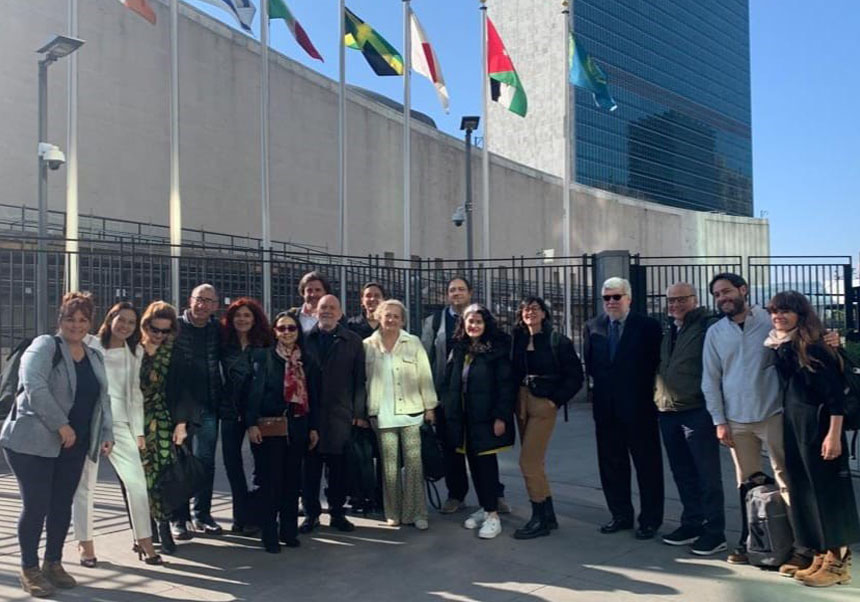
Aurora Pedro, professor of the Department of Applied Economics of the University of Valencia and director of the New Green Transition Chair, has represented the institution in the Spanish delegation that has participated in the celebration of Mother Earth Day of the United Nations Organisation in New York, in which the celebration of the Earth Assembly on April 22, 2024 has been requested. At this year’s meeting, the UN Secretary General, António Guterres, has urged to “raise the voice and demand that leaders make peace with Nature”.
Through the coordination of the United Nations Platform “Harmony with Nature”, various Spanish universities have come to New York. They are those of Valencia, Murcia, the Autonomous Region of Madrid, Alicante, Malaga, Castilla-La Mancha, the Basque Country, King Juan Carlos and Rovira i Virgili. The teachers and research assistants are part of different disciplines in which the intrinsic value of Nature is recognised, from Economics, Sociology and Philosophy to Law.
Over the past 15 years, the “Harmony with Nature” resolution has facilitated interactive dialogues focused on enhancing harmony with Nature, accelerating climate action, and implementing the UN Biodiversity Agreement. The goal is to ensure that 30% of Earth’s land and water are protected by 2030.
In this year’s Dialogue, a representative of the Human Rights Association intervened on behalf of the Spanish delegation; Teresa Vicente, the professor who has made possible the Popular Legislative Initiative of the Mar Menor, and a representative of the UNESCO Chair.
Aurora Pedro has stated: “both at the University of Valencia and at the other participating universities and institutions on a Spanish scale, we have committed ourselves to initiatives to continue promoting the Earth Program, with the aim of being able to reach a broad base for the celebration of the Earth Assembly”. In this act, different visions of the world will be discussed and work will be done with the aim of fulfilling the 2030 Agenda for “Sustainable Development and beyond”.
The work of universities, such as the one in Murcia, has been essential for Spain to become the first country in the European Union to recognise the intrinsic value of Nature, through the attribution of the legal personality of the Mar Menor and of your rights. It is a benchmark not only for other countries present at this United Nations meeting, but also an inspiring example for other forms of governance in spaces with problems associated with externalities derived from abusive economic practices, related to many parts of Nature, as is the case in Doñana, La Albufera and the Delta and the Ebro River basin, among others.
Dialogues “Harmony with Nature”
The interactive “Harmony with Nature” dialogues of the last 15 years have contributed to promoting multilateralism, a systemic vision of the economy integrated into the ecosphere and an increasingly clear awareness that it is imperative to conceive of Nature and its elements as rights-bearers’ individuals, not as a mere scenario in which to develop our economic practices.
In addition, the dialogues have allowed policy makers to learn more about methodologies and success stories based on community management of common goods (participatory ecosocial governance), ecological justice or meeting the needs of ecosystems and people in concepts such as good living or the well-being of living beings and ecosystems.
Annex photo caption:
- Aurora Pedro, professor at the Department of Applied Economics at the University of Valencia.
Categories: Finançament recerca , Difusió i comunicació científica , Facultat d'Economia , Economia Aplicada , Internacionalització recerca , Cultura Científica , Investigació a la UV , Recerca, innovació i transferència



